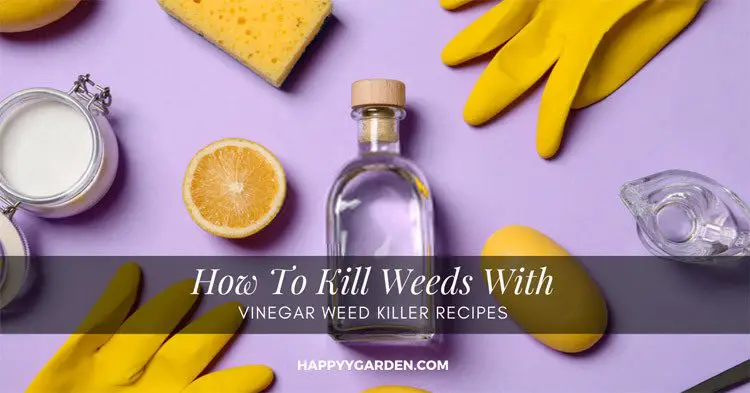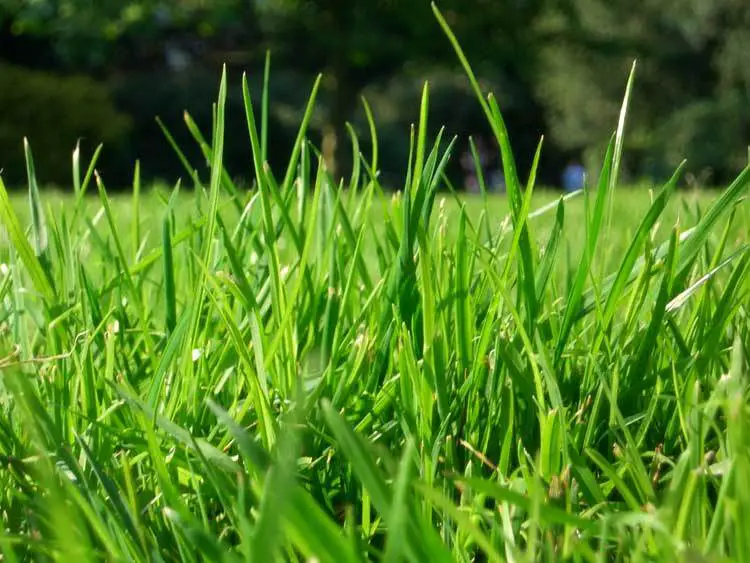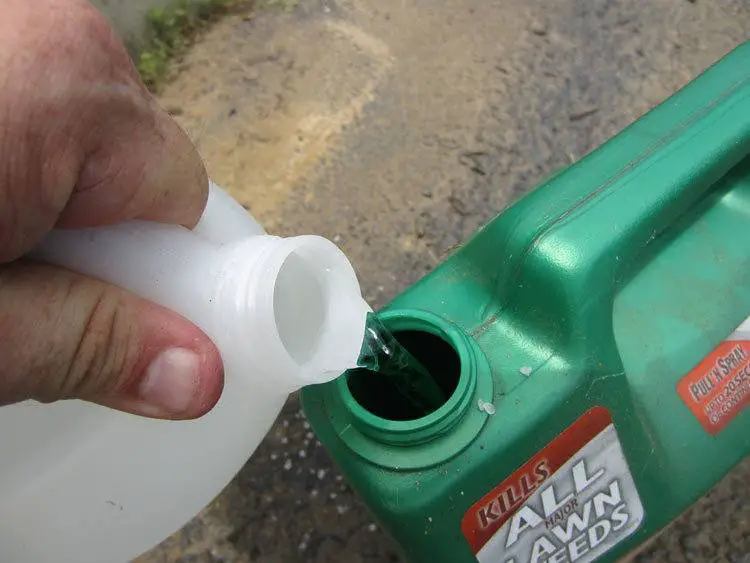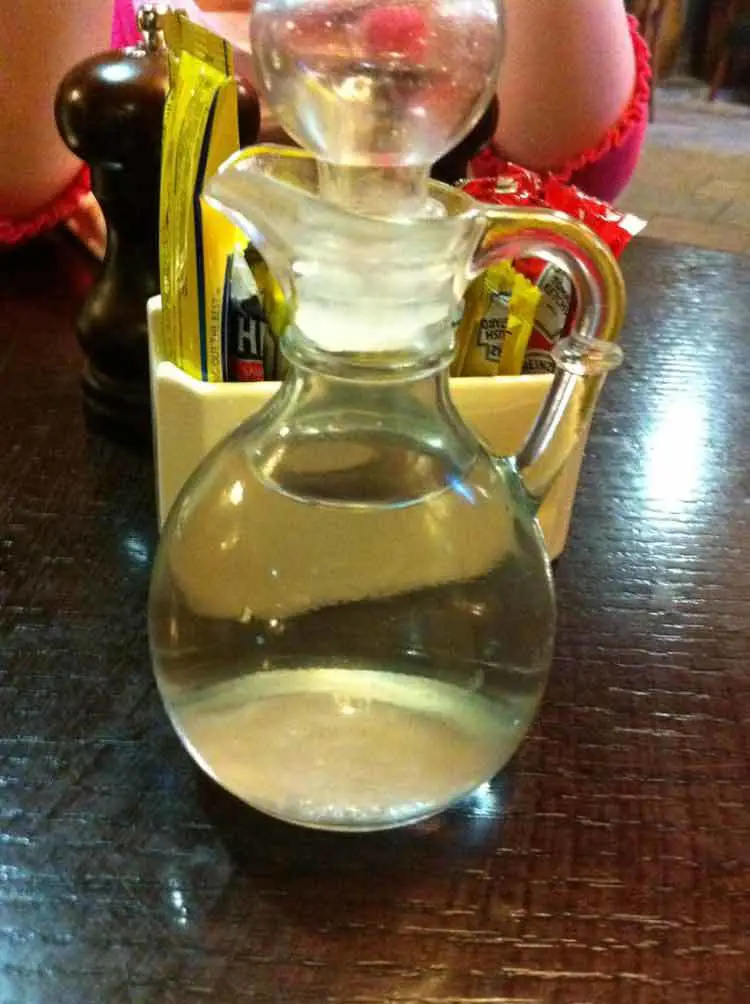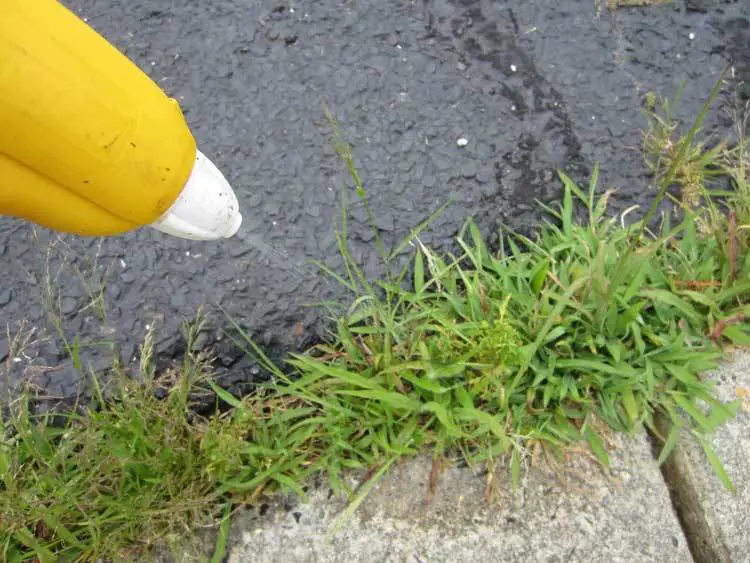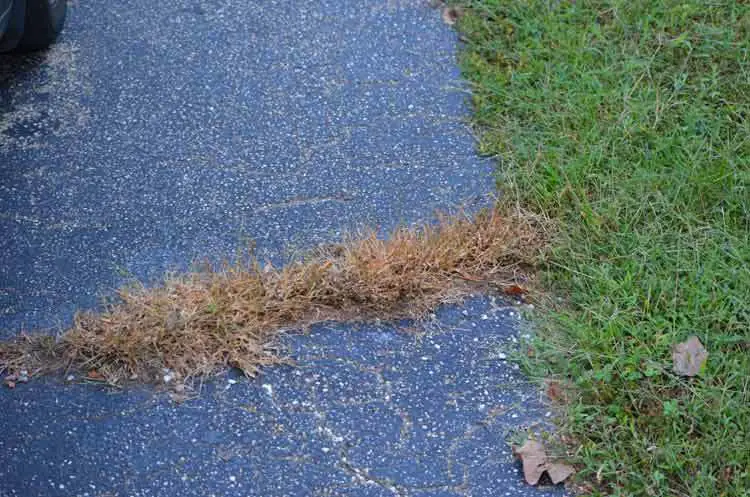8 Best Homemade DIY Vinegar Weed Killer Recipes
Is your garden overgrowth with a lot of weeds? Are you looking for a safe and effective vinegar weed killer? I am here to provide you with some related information.
If one day, your backyard is plagued by weeds, what solution will you choose among these options: a commercial weed killer, a good old-fashioned weed pulling, or a DIY option?
Each of them has its own drawbacks and benefits. However, in this article, I will recommend a safer and environmental-friendly solution - the vinegar weed killer recipes that can deal with stubborn roots.
However, you need to know other relevant information in advance.
Now, let’s discover:
Table of Contents
Why should you be wary of the wide range of synthetic weed killers?
Actually, synthetic or manufactured weed killers available on the market are useful and pretty safe solutions when you wear full of protective items. But, you should be wary of these chemical concoctions in gardening due to the following reasons:
Allergies or sensitivities

Allergies or sensitivities
Do you have any chemical sensitivity from an allergy or asthma?
If yes, you must be more careful because they may put you in danger. While applying, wearing protective items is a must-thing to reduce irritating. They include a mask for your face, a pair of gloves for your hands, long clothing for covering your legs and arms.
Pet safety

Pet safety
Nowadays, the majority of families have pets who love walking and playing in your garden or backyard. Thus, using synthetic weed killers may put them in danger.
If your pets lick greenery sprayed with commercial weed killers, it will lead to illness. That's why I write this vinegar weed killer article, which is a safe solution for your lovely pets.
Can vinegar kill weeds?
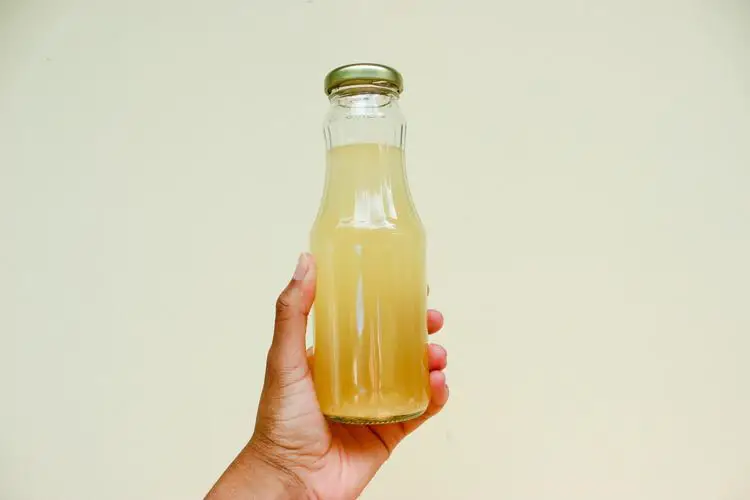
Can vinegar kill weeds?
Of course, yes. Even vinegar is one of the most effective and safest natural ways to kill weeds.
Why should you choose vinegar to kill weeds?
Due to the risks above, you need an effective natural alternative. In this part, I will let you know why you should choose weed killers with vinegar:
First of all, although there are several natural weed killer ingredients, vinegar is always the safest choice for your pets, kids, and our environment. Make sure that you apply enough concentrations or quantities.
For annual plants, the standard kitchen vinegar is strong enough to remove them. However, if you need to deal with a severe weed problem, I strongly recommend you use horticultural vinegar with higher acetic acid.
Keep in mind that the vinegar works best on sunny days since rain can wash your vinegar away. Furthermore, sunlight is also an essential catalyst for the best outcome.
Is horticultural vinegar a safe solution?
Many people said that the horticultural vinegar is more effective in killing weeds than distilled vinegar.
Is this true?
Yes, but this kind of vinegar should be used with caution because it modified from the production in the labs with high acetic acid concentration.
When it comes to strength, this kind of vinegar is stronger than other vinegars many times. Specifically, its 20% acetic acid concentration is more than 5% compared to household vinegar.
Thus, before applying, make sure that you wear protective goggles and clothing. It's better to mix this kind of vinegar with water for diluting.
Why?
The concentration of over 11% of acetic acid can burn your skin and damage your eyes. Meanwhile, the concentration over 20% can corrode concrete, iron, aluminum, tin; even it causes blindness. So, WEARING PROTECTIVE THINGS IS A MUST. Moreover, animals and our environment are also in danger.
Do you need special vinegar to kill weeds?
The short answer is yes because some of them won't work. You should look for vinegar with high acidity (about 10%, even 20%) since acetic acid plays an essential role in killing weeds.
I don't recommend regular old household vinegar that has 5% acetic acid only. This number just can wilt the weeds, and after a short time, they will regrow. The worse case is that it does nothing.
How does vinegar work to kill weeds?
Basically, the acetic acid in non-selective vinegar can kill any plant, no matter what the source is. After absorbing the moisture from the weed leaves, the weeds die quickly. Now, your task is to shrivel the weeds.
Vinegar can kill any part that it touches, but it doesn't work well with deep roots. Therefore, after a long time, they can regenerate from deep underground.
Is it safe to use vinegar as a weed killer?
In general, it is safe. But, if you use vinegar with a higher concentration of acetic acid, it is hazardous.
Keep in mind that 10-20% acetic acid vinegar is enough to kill the weeds.
While working, don't forget to wear protective items to keep yourself from danger: eye gear, safety gloves, and face masks.
In some cases, some people were burned as they stuck their hands on a grill when killing weeds on bare skin.
One more note:
Don't overuse vinegar since its acid content can alter the soil PH, preventing the development of your plant in the future.
What are the advantages of vinegar as a commercial weed killer?

The advantages of vinegar
Here are what you will get when using vinegar as a commercial weed killer:
- A cheap and readily available solution
- Quick to eliminate small weeds
- Safe for your pets, kids, and our environment
- Removable for most weeds in one application
What are the disadvantages of using vinegar?
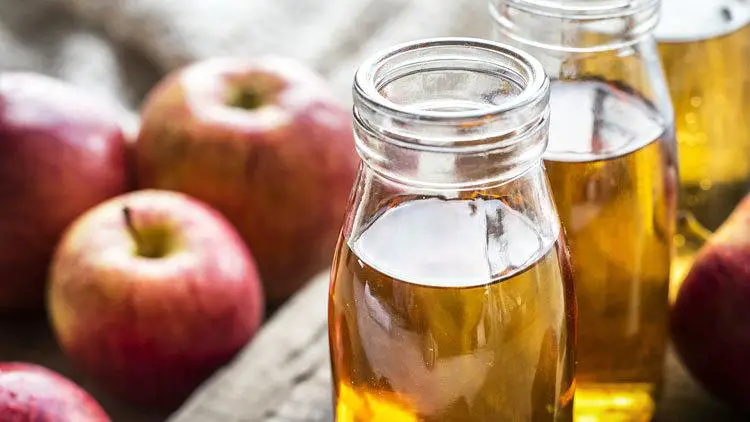
The disadvantages of vinegar
Anything has both positive and negative aspects. You should learn carefully to make sure that it suits your case:
- Higher acidity for more dangerous
- Not useful for deep-rooted weeds and plants
- Not suitable to use on your lawns
- Not useful lower acidity vinegar
- Harmful to soil PH
Do you need any tool to use with vinegar?

A sprayer
To apply a large area of weeds exactly, you need a sprayer bottle or pressure sprayer.
Of course, you also need to prepare some protective items for your hands, eyes, and mouth.
Other natural weed killer ingredients
Apart from vinegar, there are other standard household products, which can help you kill weeds:
Boiling water
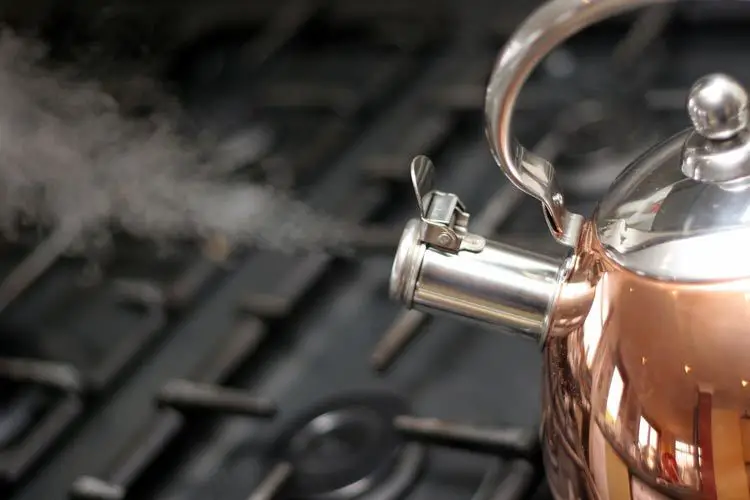
Boiling water
This is a burning weed method with boiling water. Below are the advantages of this way:
- Kills weeds effectively without leaving residue behind
- Works best on large areas such as path or driveway
How to use it?
Simply pour boiling water over the targeted area of weeds and wait until it cools down. Finally, you only need to remove the dead weeds away. You should be careful when applying this method because it may burn your skin.
Salt

Salt
Salt is very useful in killing weeds, but it is also strong enough to erode concrete. Therefore, avoid applying on your driveway, especially, remember to clean all spills on your patio and garden edging.
When using salt on killing weeds, you have to be more careful since it's very straightforward to make your garden ugly with a barren area. Applying salt on the leaves of the weeds can cause them to wither and die.
If you are spraying saltwater, you also have to ensure the precision of the best result.
Borax
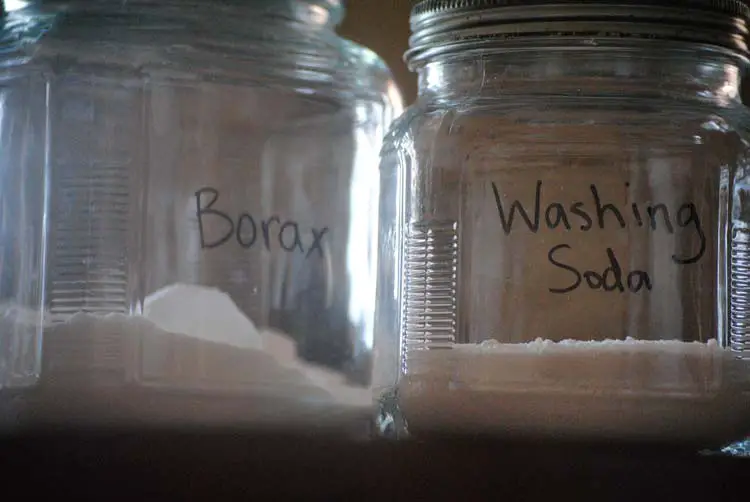
Borax
Borax is a versatile cleaning product that is a cheaper and more eco-friendly alternative for chemical weed killers.
Although this solution is not as cheap as vinegar, you can kill a lot of weeds with a small amount of money to buy borax.
How to apply borax?
After mixing the 100g borax powder with 3L water, let's spray the mixture on the leaves of the weeds. If you want to add strength, you can apply the borax vinegar dawn weed killer recipe.
Don't apply on your healthy plants and avoid saturating the soil, unless you want to kill your favorite plants and leave an ugly spot on the ground as well.
Dishwashing detergent
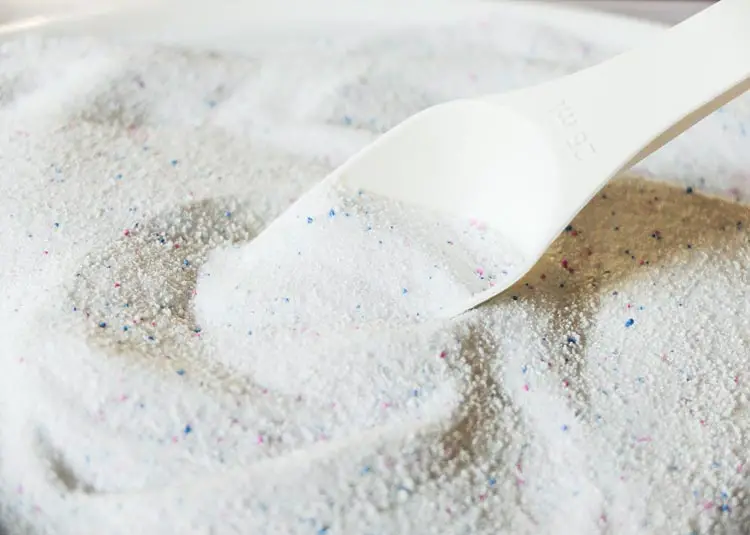
Dishwashing detergent
You can use dishwashing detergent as a surfactant to make your DIY herbicide. These surfactants will break down the wavy coating on the leaves of the weeds for better get in and maximum damage.
Note:
Though this solution has a low cost and low risk, it takes you a lot of time preparing and using.
Lemon juice

Lemon juice
Lemon contains highly natural acidic content so that it can kill weeds of all sizes and shapes.
How to apply lemon juice on killing weeds here:
After filling a spray bottle with lemon juice, heavily spray this fluid on the weeds to remove them. You may need to wait for a few days to see death weeds.
For harder-to-kill weeds, you should add vinegar into the lemon juice for better effect.
Banking soda
You can sprinkle a little baking soda between cracks in paths and sidewalks to kill unwanted plants. Although banking soda harms weeds, it doesn't affect your healthy grass, plants, and vegetation.
This is an excellent solution for owners of a lot of their favorite plants around the weeds.
Newspaper

Newspaper
Yes, NEWSPAPER. You hear nothing wrong.
This way seems strange, but it's useful.
Follow my direction here:
- Apply any solution in this article.
- Crumple up and lay some newspapers in the area where weeds develop.
This method helps you not only stop your weeds from growing but also shut out the air and sunlight. So, the new weeds can't come back one more time.
Mulch
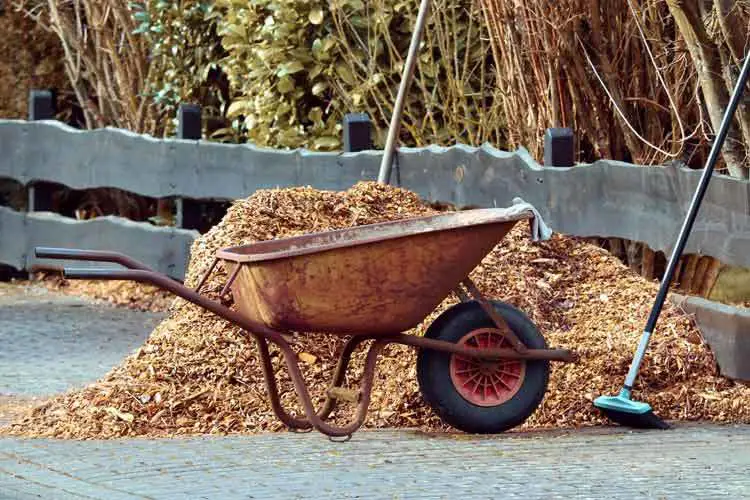
Mulch
Mulch can control the development of weeds and unwanted plants because it prevents the sun from getting through the weeds.
If you want a garden free of weeds, let's spread mulch about 2 inches in depth on your soil.
Top 8 Best Homemade vinegar weed killer recipes

Homemade vinegar weed killer recipes
In this part, I will list some effective natural replacements for your chemical herbicides:
Homemade dandelion killer recipe
This solution is a replacement for your emergent herbicide:
Preparation
Direction
Mix all ingredients listed in the preparation part together, and then, you pour this mixture into a spray bottle. For the best outcome, you had better choose the sunniest time of day to spray it.
Note: This DIY solution doesn't work as quickly as the chemical products available on the market because it isn't formulated to kill the roots of weeds.
Vinegar plant spray recipe
This solution can deal with unwanted plants without harming the healthy plants around them.
Preparation
Direction
2-ingredient recipe
This is the simplest solution in this list. It can help you kill young weeds with minimal effort on your end.
Preparation
Direction
Mix 2 ingredients and pour them into a spray bottle. Remember to shake before applying the mixture to the weeds. Avoid using this garden sprayer on your edible plants.
How effective is vinegar as a weed killer?
Do you know Round-Up?
To compare, I see that the effectiveness of vinegar is as good as Round-Up.
Plus, the main ingredients of these mixtures include salt that adds strength to kill weeds.
Does vinegar and Epsom salt weed killer work?
Yes. In this article, you can easily find out at least an effective vinegar weed killer recipe with Epsom salt.
Apple cider vinegar Epsom salt weed killer
Apple cider can bring a similar result as the combination of the white vinegar and dish soap. Thus, this apple cider vinegar weed killer just requires 2 ingredients:
Preparation
Direction
Now, you have done the Epsom salt weed killer recipe with apple cider vinegar.
Simple vinegar and Castile soup based weed killer recipe
First, this recipe is potent, so you must spray carefully to avoid harming your healthy plants.
Preparation
Direction
Mix all essential oils and soap in a spray bottle.
Then add vinegar, put on the lid, and shake well.
Spray on the unwanted weeds to remove them.
This solution works well on driveways and sidewalks.
Orange oil-based natural weed and grass killer recipe
This solution is ideal for spot treatment.
Preparation
Direction
3-ingredients natural weed killer recipe
This 3-ingredients natural weed killer recipe is a weed killer using vinegar Epsom salt and dawn. Before performing, there is a small note. You just need to prepare a spray bottle for a small area, but a larger area of weeds requires you a garden sprayer.
Preparation
Direction
How does it work?
In this Epsom salt vinegar soap weed killer recipe, vinegar will draw the moisture of the weeds until they die completely. Especially, if you apply on a sunny day, sunlight helps you magnify the power of the vinegar. It's best to spray on the hottest time of the day and ensure that there is no rain for at least 24 - 48 hours.
In some cases, you can't kill all weeds at one time, so it's essential to apply the second time. Generally, most of them will die within a few days.
How to make DIY weed killer for replanting areas
If you are facing the problem that is how to replant on a weed area for the harvest season, I can guide you make a natural weed killer with vinegar and dawn recipe.
- Fill a garden sprayer with white vinegar and some drops of Dawn dish soap.
- Soak your weeds with this mixture on a sunny day.
You will see the result within a few hours only.
Note: Don't spray on your healthy plants.
This method doesn't damage your surrounding soil, so you can replant in this area after killing the weeds.
DIY weed killer for an area that doesn’t require replanting
In case you don't want to replant in an area with full weeds, let's apply this recipe:
Preparation
Direction
Although it must be through many steps, this solution is sufficient in killing the weeds permanently.
A weed killer recipe for younger weeds and sidewalk cracks
If you only need to kill new growth weeds, you can apply this simple concoction without vinegar.
Preparation
Direction
Useful tips for applying vinegar weed killer for the best outcome
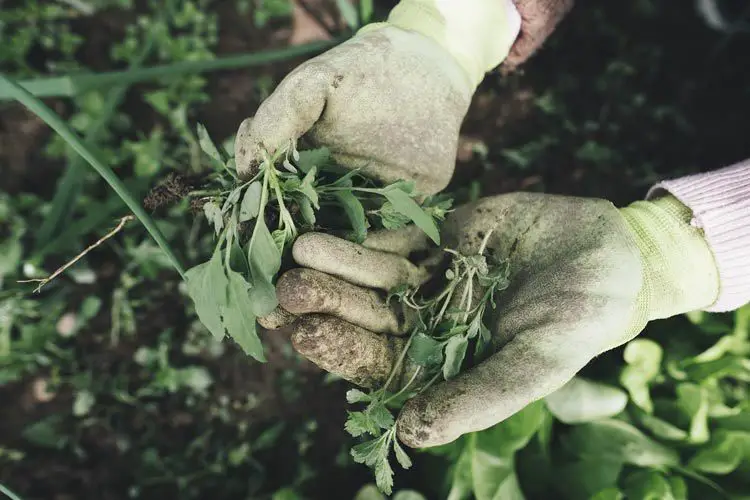
Useful tips for applying vinegar weed killer
Although vinegar is very effective, using these tips can maximize the outcome:
- You should use a vinegar weed killer after a rainstorm since rain-water makes the ground softer. It leads to remove weeds easier, especially, you won't miss any stuck weed in the ground.
- If you can't wait until it's rain, you can loosen the ground around weeds with a tool. This tip doesn't require a specialized gardening tool. It's fine to use a good stick, screwdriver, or a knife.
- Prevention is better than cure, so you had better kill new growth of weeds instead of waiting for the actively developed weeds.
- In this article, there are several recipes, including detergent and soap ingredients. These products usually contain dangerous chemicals such as bleach, sodium hypochlorite, phenols, and phosphates.
The National Institutes of Health said that while sodium hypochlorite and phenols come with toxic properties, phosphates harms our environment. Thus, you should invest in the free-chemicals detergents. Furthermore, it's also essential to avoid buying "antibacterial" household cleaners because they can kill the beneficial bacteria in your soil.
Other applications of vinegar in your garden
Apart from killing weeds, vinegar has more uses than your thinking:
Repel ants
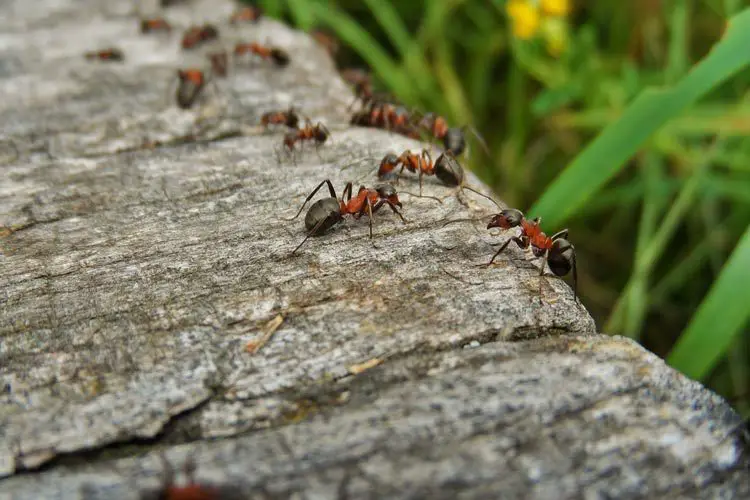
Repel ants
In summer, the majority of garden owners have to suffer from invading ants.
Are you one of them?
If yes, I strongly recommend you use vinegar as an ant killer.
How to use it?
After filling your spray bottle with half vinegar and half water, directly spray the mixture onto the ants to remove all ants around your garden permanently.
In case you don't want to kill them, let's spray the mixture around the walls of your garden, your walkways, and on the anthills.
Impulse germination
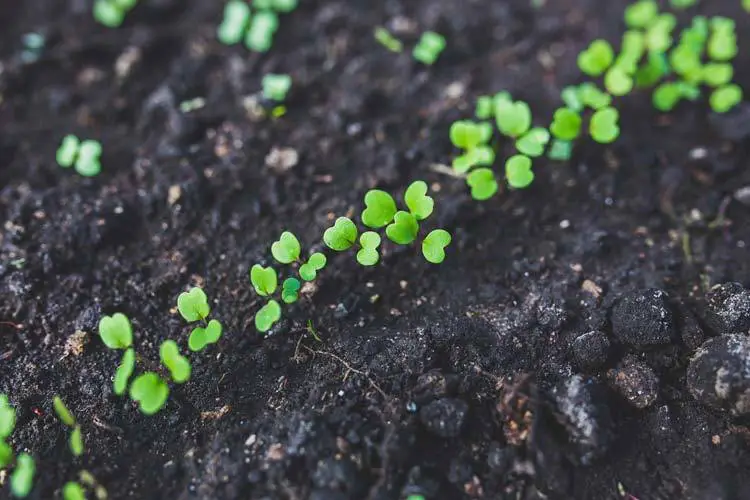
Impulse germination
If you are growing these seeds: okra, nasturtiums, and other drought-resistant flowers, you may recognize that they are hard to germinate. The vinegar will help your plants germinate more convenient.
To boost the germination process faster, please soak your stubborn seeds in the solution of a few drops of white vinegar and water overnight.
On the next day, simply plant these seeds as regular, you will be surprised with its amazing outcome.
Keep fruit flies away with vinegar
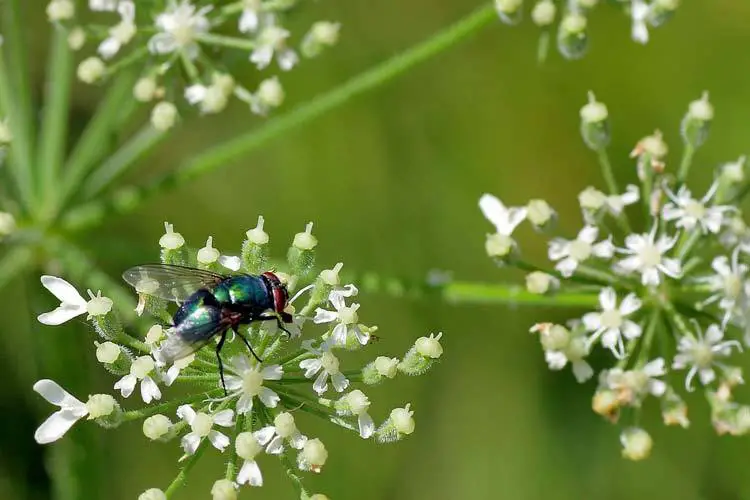
Keep fruit flies away with vinegar
Any gardener knows that fruit flies, slugs, and snails are the frustrating garden pets. Vinegar will help you keep your plants and fruit trees away from these.
What is the detailed plan?
TRAP THEM WITH VINEGAR. Follow the direction below:
Make a fruit fly trap by pouring a little liquid dish soap and apple cider vinegar in a jar.
While the vinegar ingredient will smell to lure the fruit flies into the pot, another one will make them sink and trap into the jar.
If you soak your gardening things in distilled vinegar and put them around your garden, you can keep your pets from destroying your plants.
Clean your clay pots and rusty garden tools
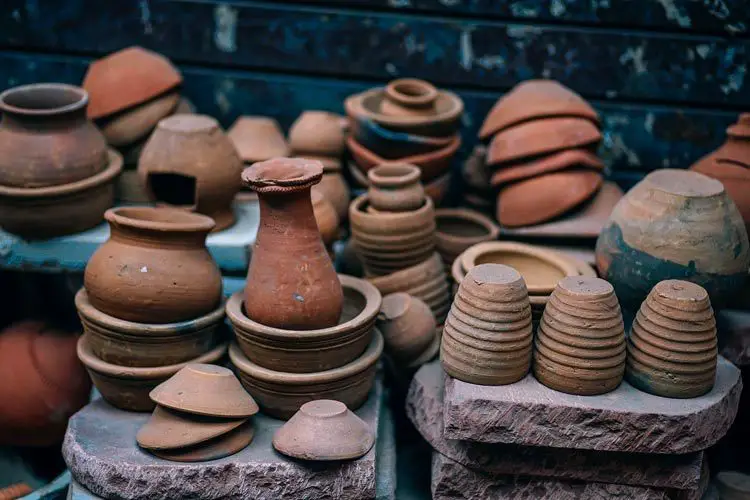
Clean your clay pots and rusty garden tools
The majority of gardeners use terracotta and clay pots because of their high durability. Specifically, they can provide your plants with cooling soil even while the weather is so hot.
However, the drawback of these pots is that it is straightforward for them to absorb salt, calcium, and other minerals, leading to unattractive white stains. And the good news is that you can clean these stains with vinegar throughly.
Take a look at the recipe of the simple vinegar cleaner
Preparation
Direction
Mix the white vinegar and water in a small bucket, then soak your clay pots to the solution for 30 minutes. It helps you dissolve the buildup of the stubborn mineral. After drying, you will see this outcome.
When it comes to rusty garden tools, let's directly spray the undiluted vinegar onto your garden tools to remove rust. Remember to wait for a few minutes before wiping down.
Besides, you can use vinegar to clean your pieces of outdoor furniture as well.
Preserve fresh cut flowers
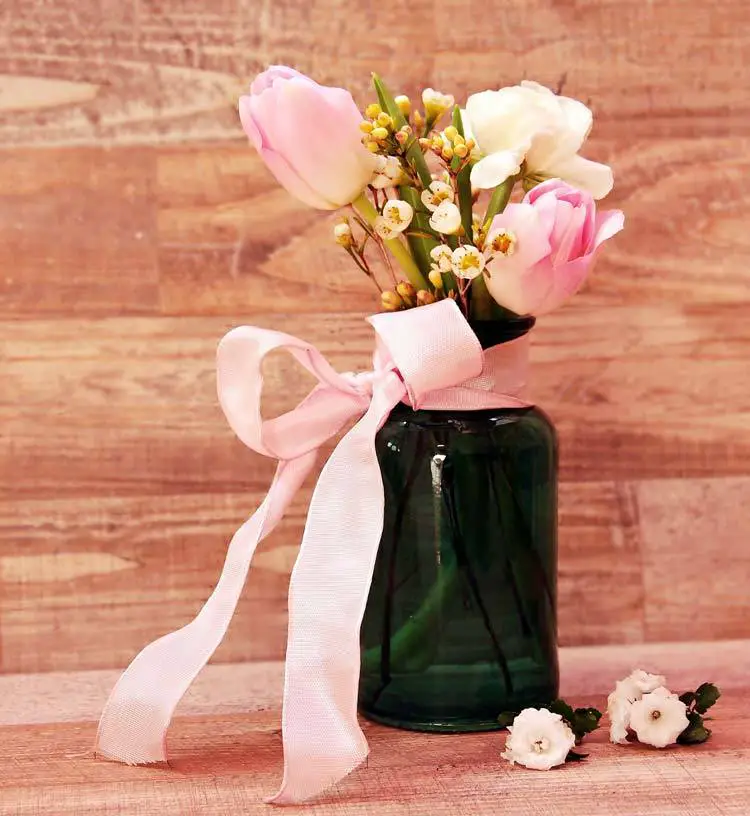
Preserve fresh cut flowers
If you cut some flowers to decorate your rooms, typically, they just can live a few days. It is because no root is responsible for supplying nutrients. Apply the following recipe, and you can prolong their life:
Preparation
Direction
After filling the vase with water, you add the solution of vinegar of sugar, then stir these ingredients. Finally, you can arrange your cut flowers.
Don't forget to change a new solution every a few days to keep your flower as fresh as possible.
Increase soil acidity
Do you know that rhododendrons, hydrangeas, and gardenias are acid-loving drought-tolerant plants?
In this case, vinegar can increase soil acidity. Water these plants with the solution of one cup of white distilled vinegar and a gallon of water.
In case your plants don't love acid, adding white vinegar to your soil also brings the benefit of fighting hard water and lime.
Remove fungus and mold
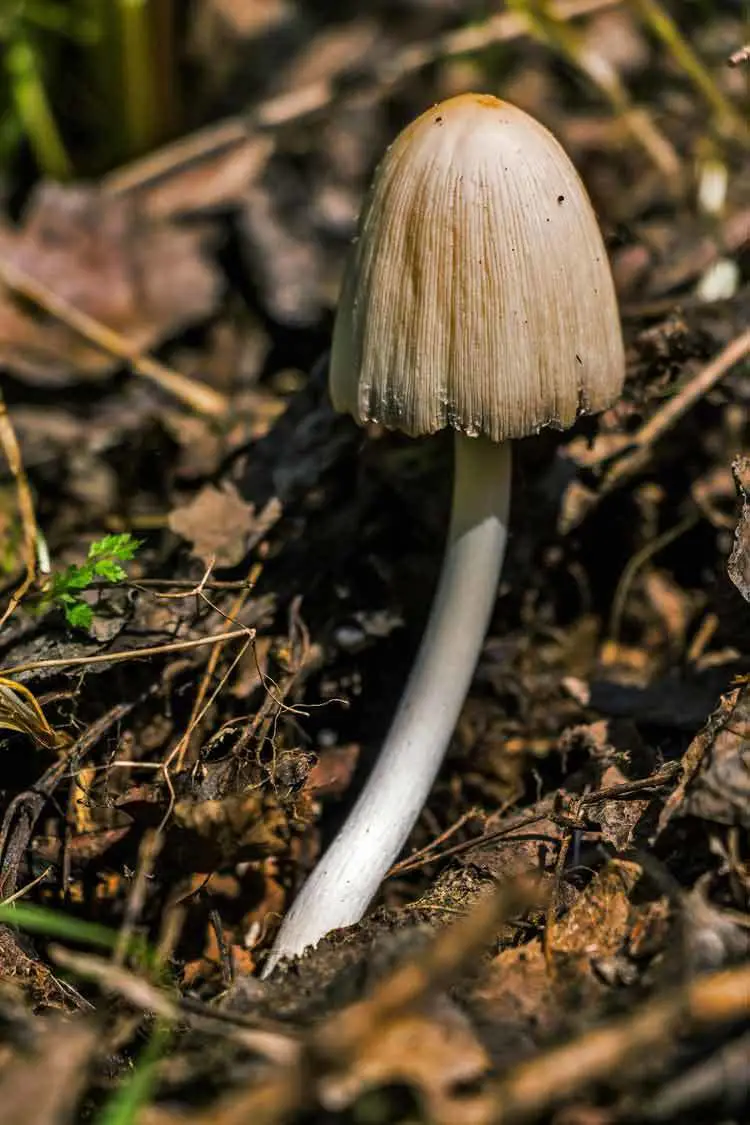
Remove fungus and mold
Here is the simple and easy-to-use vinegar fungicide recipe:
Preparation
Direction
Mix the chamomile tea and 2 tsp of vinegar. After that, you fill a spray bottle with this solution to spray plants in your garden.
Clean and wash your fresh vegetables
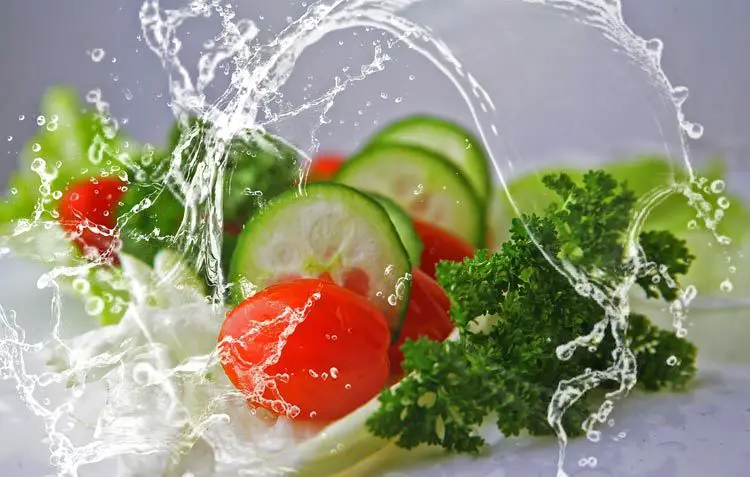
Clean and wash your fresh vegetables
The combination of water and white vinegar helps you clean your fresh vegetables quickly. It makes sure that you can remove all harmful bacteria on the surfaces thoroughly.
Enjoy your garden free of weeds!
Let’s help you summarize the vital information of the vinegar weed killer.
First of all, vinegar can kill any part of weeds that it touches, but it is impossible with plants having deep roots. Thus, after a long time of application, weeds will come back.
However, compared to other harmful products with chemicals, this is a very safe solution for yourself, your children, pets, and our environment.
Apart from killing weeds, vinegar is beneficial in applying for other tasks. Meanwhile, you can also refer to some effective methods of killing weeds with other natural things.
Now, are you clear? Do you have other questions regarding this issue? If you have any good ideas to add this article, don’t forget to leave your comment in the section below. Also, please share my article if you find it informative.
Thanks for reading, and see you in the next article!

